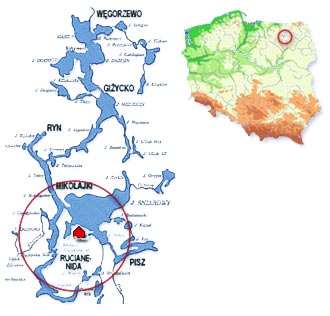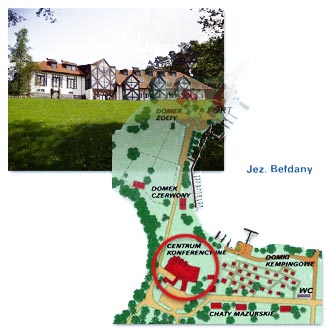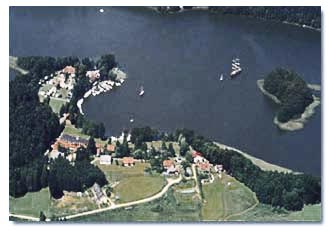


First Circular ::
Trip programme ::
Departure to Wierzba ::
Application form ::
Abstract form
Download Publication Instructions ::
ABSTRACTS ::
PRESENTATIONS ::
GALLERY
Wetlands belong to the most endangered ecosystems of the world. Their protection and management become one of the most challenging tasks of nature protection as it has to coupe engineering knowledge of hydrological systems, plant ecology and in many cases agricultural practices. The conference should bring together the specialists on wetland hydrology and hydraulics, ecologist and people dealing with wetlands management or water managers of the catchments where wetlands are located in order to answer two main questions: " How do we see the wetlands from the catchment perspective? " What are the most important features of the wetlands for their conservation and management?
It is not our ambition to cover all topics related to the theme of the conference.
However, our last WETHYDRO workshops, NATURA2000 project of Global Water Partnership and WWF Poland as well as the EUROWET Conference showed that there are number of subjects which should appeal to the wetland scientist's community for more detailed study. Those topics are divided in three main groups:
M1: Monitoring
Role of Remote Sensing in assessing the status of wetlands
Role of Remote Sensing for estimation of processes (eg. evapotranspiration)
Strategy for integrated wetland monitoring (relation with water bodies monitoring)
New devices and new approaches to the data collection.
M2: Modelling
Ground water - surface water relations
Evapotranspiration from wetland vegetation
Connection between hydrological and ecological models in integrated wetland modelling
Including wetlands in a catchment modelling
Solutions for model parametrisation to characterize the management scenario
Quality of models and use of sensitivity analysis.
M3: Management
Wetlands as service providers in a catchment
Good ecological status - what does it mean for different type of wetlands
Wetlands management in sub-optimal water conditions.
We would like to propose to divide the submitted papers - as far as it is possible - into :
• Theoretical consideration and reviews (with or without practical examples),
• Case studies (with clear link to the chosen topic).
One page abstract (2500 characters) in a format attached should be send to the Conference Secretariat up to January 31st 2005. We will be very obliged for clearing statement if author is M1T,M2T and M3T or rather M1C, M2C, M3C in his approach (exp. M1T - monitoring and theoretical consideration and reviews). It should help all of us in formulation of the sessions in a way which will be most stimulating for the proposed problems solving.
For the conference abstract book.
• Polish Journal of Environmental Studies (Journal from Philadelphian list)
• Monograph of Wethydro series.
31.01.2005 Abstract submission
01.03.2005 Authors notification
01.04.2005 Provisional programme
01.06.2005 Early payment
01.08.2005 Final programme
01.09.2005 End of registration
22.09.2005 Beginning of the Conference
25.09.2005 End of the Conference
25-28.09.2005 Post - conference tour
Available here or at the top of the page.
Conference will be held in English.
Between 20-70 scholarships from European Union will be provided for the successful applicants (only for participants from European Union countries) covering all conference costs (including travel from EU countries). The scholarship does not cover the post conference tour. The details of the scholarship providing will be given in the 2nd circular.
The conference is organized within the "Center of Excellence in Wetland Hydrology" - research Project Supported by the European Commission under the Fifth Framework Program (contract no. EVK1-CT-2002-80011) by the Warsaw Agricultural University, Department of Hydraulic Engineering and Environmental Recultivation.
Prof. Tomasz Brandyk (Warsaw Agricultural University, Poland)
Prof. Stefan Ignar (Warsaw Agricultural University, Poland)
Prof. Janusz Kindler (Warsaw University of Technology, Poland)
Prof. Janusz Kubrak (Warsaw Agricultural University, Poland)
Prof. Zbigniew Kundzewicz (Potsdam Institute for Climate Impact Research, Germany)
Prof. Edward Maltby (Royal Hollaway Institute for Environmental Research, United Kingdom)
Prof. Patrick Meire (University of Antwerp, Belgium)
Prof. Hans Peter Nachtnebel (Universität für Bodenkultur, Austria)
Prof. Peter Troch (Wageningen University, The Netherlands)
Prof. Ronny Verhoeven (Gent University, Belgium)
Prof. Martin Wassen (Utrecht University, The Netherlands)
Dr Mike Acreman (Centre for Ecology and Hydrology, Crowmarsh Gifford, United Kingdom)
Dr Add De Roo (Joint Research Centre - Ispra, Italy)
Coordinator - Dr Tomasz Okruszko
Modelling - Dr Dorota Mirosław-Świątek
Management - Dr Wiktor Kotowski
Monitoring - Dr Jan Szatyłowicz
Post - conference tour - Dr Marek Giełczewski
Secretary - Magda Jarecka, MSc.

Wierzba - The House of Creative Work by The Polish Academy of Science.
Wierzba is located in the region of Poland called Warmia and Mazury - the region full of charm and magic, plains, rolling hills and meadows. Sparkling lakes, numerous rivers, streams and canals which form an enormous water network.

Wierzba is one of the least spoilt and exceptionally beautiful places in the wilderness of primeval forests on the edge of the great peninsula in between Śniardwy Lake (the greatest in the lake district) Bełdany and Mikołajki Lakes. Surrounded by forests, Wierzba is isolated from other places and villages.

The unique beauty of the place was once appreciated before the war. About 500 conferences have already been held in our centre both home and international ones (science, economic ecological, social and many more.) It is also the place for scientific workers to spend their holidays.
Popielno - far away from civilization. Popielno lies in the middle of the old forests of the Piska Reserve right on the Śniardwy Lake. Popielno is known from the Experimental Centre of Polish Academy of Sciences for research on breeding Polish horses. From over 40 years there are carring out many works connecting with nature protection: program for Polish horse breeding, only one in Poland beaver breeding. The station also manages a ranch with deer, red bulls and bison.
The planned post-conference tour will give you a unique opportunity to discover a beauty of North-Eastern Poland and see its natural jewels. This guided tour will allow you to explore four National Parks and several other protected areas located in this region. Each of the sites bears its own, unique character, where water plays important, often dominant, role. Wetlands of different types, different history and different management typical for the post-glacial areas are to be seen. Additionally, the rich wildlife including elk, ruff, black grouse, stork or European bison can be peeked at in their natural habitats, as well as one of the last European pristine primeval forests, the Białowieska Forest. We offer 20 places for the post-conference tour. First come, first served.
300 € (travel Warsaw-Wierzba, accommodation, feeding, conference materials and post conference publications)
and 190 € post conference tour.
Warsaw Agricultural University
Department of Hydraulic Engineering and Environmental Recultivation
166 Nowoursynowska St, 02-787 Warsaw, Poland
Tel. + 48 22 59 35 316
Fax + 48 22 59 35 320
e-mail: M.Jarecka@levis.sggw.waw.pl
website: http://levis.sggw.waw.pl/wethydro/